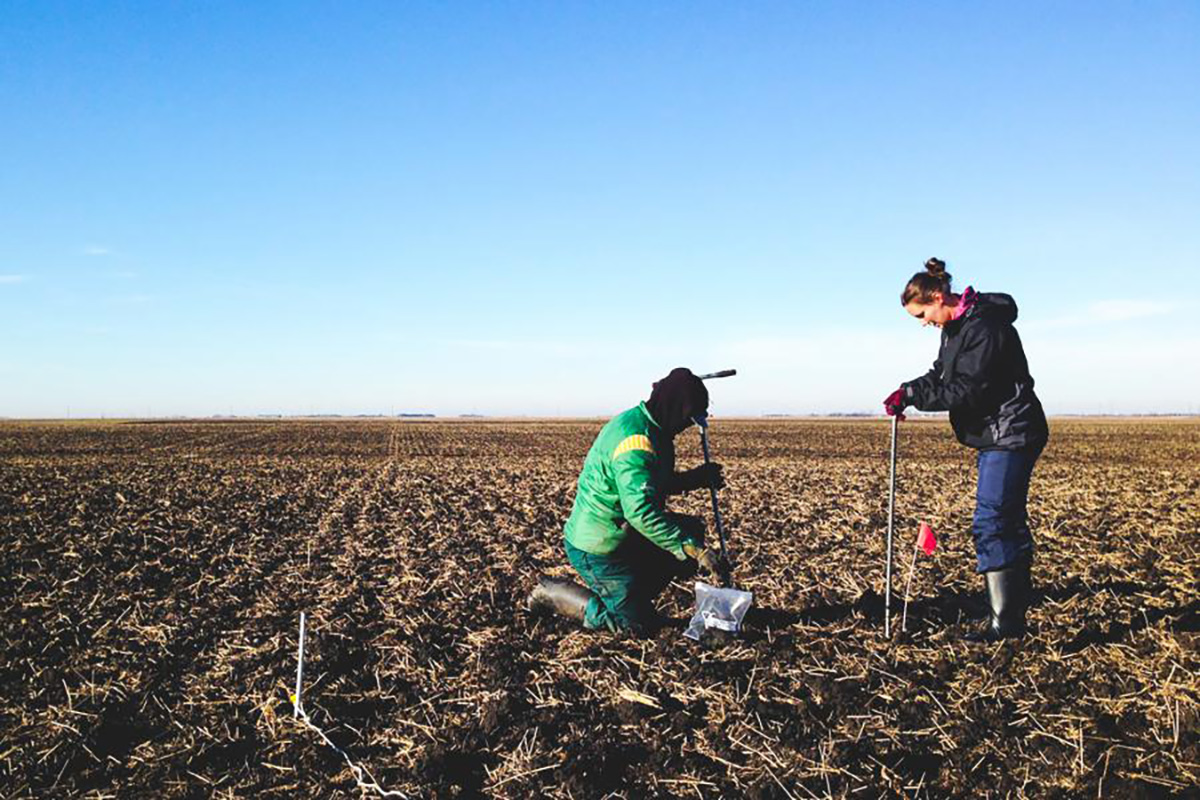
Cattle Country: Science supports productivity-enhancing technologies’ effects on the environment
The following article was written by Peter Frohlich, National Centre for Livestock and the Environment (NCLE), University of Manitoba. It was originally published in Cattle Country in August 2023.
It is estimated that the world population will reach nine billion people by 2050 and sustainably produced animal protein can play a key role in addressing the resulting food security challenges. Productivity enhancing technologies (PETs) such as implants and feed additives have been used effectively to improve growth and feed efficiency of beef cattle. However, the use of PETs has been banned in Europe and other markets as consumers are increasingly asking for “free-from” or “natural” products. Some consumers may not be aware of the environmental implications of removing conventional PETs from production systems. Recent research at the University of Manitoba has helped address this question by examining the impact of removing PET’s on the environmental footprint of beef production.
What are Productivity Enhancing Technologies?
There are several types of productivity enhancing technologies (PETs) used in conventional beef production. These include feed additives such as ionophores and beta-adrenergic agonists (BAAs) or implants which are placed between the skin and the cartilage of the ear of an animal.
Environmental benefits of PET use – scientific evidence
A team of researchers at the University of Manitoba led by Dr. Kim Ominski from the Department of Animal Science and Dr. Tim McAllister from Agriculture and Agri-food Canada have examined the impact of removing conventional PETs or replacing them with natural feed additives such as fibrolytic enzymes and essential oils. As a member of this team, Dr. Isaac Aboagye found that replacing conventional feed additives in feedlot diets with natural feed additives increased green house gas (GHG) emission intensity for steers and heifers by 5.8% and 6.7% and ammonia emission intensity by 4.3% and 6.7%, respectively. In addition, replacing conventional feed additives with natural feed additives increased both the land and water required to satisfy the feed demand of steers and heifers by 7.9% and 10.5%, respectively. Eliminating the use of implants all together in cattle increased both land and water use by 14.6% and 19.5%, GHG emission intensity by 10.5% and 15.8%, and ammonia emission intensity by 3.4% and 11.0% for heifers and steers. The study concluded that the use of conventional PETs can increase animal performance and reduce the environmental impacts of beef production. A second study, conducted by team member Emily Boonstra, modeled environmental impacts associated with the removal of PETs from Canadian feedlots using cattle performance data from trials conducted at the Agriculture and Agri-food Canada Research Development Centre located in Lethbridge, Alberta. This study also determined that PETs used in conventional beef production systems have lower GHG and ammonia emissions, as well as land and water use compared to production systems without PETs.
Markets and consumers
There are several countries that allow the use of PETs including Canada, US and Mexico and other large beef producers like Australia and Brazil. These countries rely on export markets and therefore must meet requirements of those countries that do not allow use of PETs including the European Union.
Some of today’s consumer’s perceive that PETs have negative impacts on the environment, food safety and animal welfare. More then half of consumers from 69 countries who participated in the online Nielsen Global Health and Ingredient-Sentiment Survey indicated that they preferred meat and other products that did not receive growth hormones and antibiotics. It is important to note that these online responses may contain inherent biases as they are based on claimed behaviour or willingness to purchase rather than direct measurement of product purchases within the food service and retail sectors.
Since consumers have a strong influence on the direction of markets there is a need to ensure that these end users have the information necessary to make informed decisions that are rooted in sound scientific knowledge. Studies like those conducted at the University of Manitoba and other institutions provide the information needed to make sure consumers and policy specialists make informed decisions to ensure a continued profitable and environmentally sustainable beef production system in Canada.






